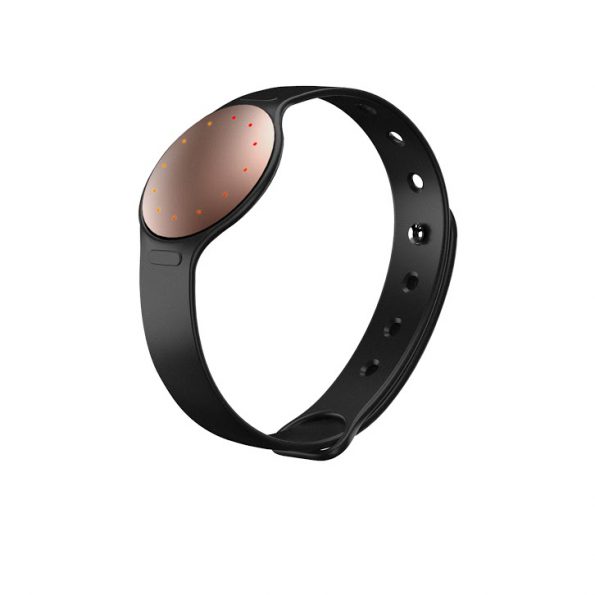A Fashionable Future
A strategic acquisition spurs Fossil’s expansion into the multi-billion-dollar wearable technology market.

Halloween is huge at Fossil. The Corporate Markets team coordinates fun, unique costumes every year. Celebrating Halloween in 2014 are (from left) Premium Account Manager Jenny Durham, Central Territory Account Manager Shauna McCormick, Sales Coordinator Whitney Beeman, Marketing and Finance Specialist Daniel Schiele, Vice President Special Markets Doug Smith, former Sales Rep Tricia Baer, Inside Sales Rep Daniel Roland-Sanchez and Manager Sales and Operations Melissa Whitehead (missing is East Coast Territory Rep Kim Johns).
From the moment you enter Fossil Group’s (UPIC: FOSS0001) Richardson, Texas, headquarters, you feel like you’re in a fun, retro-themed movie set. Illustrated vintage Fossil watch boxes line one wall, while quirky images are plastered on the opposite wall. A camping and Boy Scout-themed exhibit showcases the new men’s leather bag collection. Creativity and whimsy are hallmarks of the global design, marketing and distribution company that specializes in consumer lifestyle and fashion accessories. Its popular brands include Fossil, Skagen, Relic and now Misfit, and it also sells licensed brands including Michael Kors, Adidas, kate spade, Tory Burch and Diesel.
Until recently, Fossil was the company distributors chose for popular designer watches, purses and jewelry, not necessarily wearable technology.
That changed in November 2015 when Fossil acquired innovative fitness and sleep tracker company Misfit and dove headfirst into wearable technology. With Misfit, “we have a significant opportunity to add technology and connectivity across our platform of watches and accessories,” says Kosta Kartsotis, CEO of Fossil Group. “With the acquisition of Misfit, Fossil Group will be uniquely positioned to lead the convergence of style and technology and to become the fashion gateway to the high-growth wearable technology and connected device markets.”

Cutline: Products in the Fossil Q Wearables Collection.
The Bureau of Labor statistics reports that Millennials will make up 46 percent of the workforce by 2020 and 75 percent by 2025, and Fossil is hoping to capitalize on Millennials’ preference for connectivity as well as great design in all aspects of their lives. Industry research shows that the wearable technology market will experience explosive growth in the next few years, climbing from a $14 billion industry in 2015 to a $45 billion industry by 2019. Fossil believes the wrist will be a gateway to this connected lifestyle.
“It won’t be long before every watch we distribute out of our warehouse will have some sort of connectivity capability. We hope to do $1 billion in wearable technology by 2020,” says Jenny Durham, premium account manager for corporate markets.
Fashion-First Focus
Fossil executives believe the company is uniquely positioned to approach wearable technology from a design standpoint. “We’ve got the fashion aspect covered and we're bringing in technology. Everyone else has a technology watch that they are trying to make fashionable, and that’s really hard to do. We’re taking these great-selling Fossil watches and adding in a hidden component, so it still looks like your favorite watch,” Durham says.
“Now that we’ve got Misfit, we own a world-class software and hardware engineering team, allowing us to insert all of these amazing capabilities inside of our existing line of watches. Not to mention change it up every six weeks—because technology is always changing.”
Durham points to the Misfit tracker she’s wearing, a rose gold circular face with dots around the outside of it that light up for different reasons, such as tracking steps, when she taps it. It’s a seamless, intuitive interface that can also track sleep and swimming laps. It subtly vibrates to tell you to move more. Plus, it’s a watch. Dots light up for the hour and minute hands. “The best part is that you don’t have to charge it. Instead, there’s a six-month battery. Misfit emails you when your battery needs replacing and they send you a free battery that you pop in,” says Durham.
In contrast to a lot of fitness trackers on the market that have complicated digital interfaces, beep a lot and need to be charged and connected to a computer in order to sync, Misfit’s products are cool, calming and unobtrusive—they look like an interesting piece of jewelry rather than a fitness device.
Connecting To Corporate Wellness
With companies increasing their investments in corporate wellness, merchandise incentives for participants are often part of the deal. Fossil expects Misfit products to be popular in these types of wellness programs. “I’m pushing Misfit with a lot of my corporate accounts,” says Shauna McCormick, central territory account manager. “They love that you don’t have to charge it and that it automatically syncs with the app, and it’s so easy to read.”
In addition to selling Misfit trackers, Fossil plans to incorporate Misfit’s technology into its other watch lines, with more than 100 wearable products debuting in 2016. For corporate markets, this means more choices for distributors to offer their clients in the consumer loyalty, incentive and recognition and corporate gifting markets. According to Durham, the biggest challenge for Fossil is training distributors to represent the many Fossil brands.
“How do we take this whole building and encapsulate it into a two-minute spiel that the distributor can communicate to their client? There’s so much going on here. Several of our accounts are extended to more than 20 of our brands. It’s a challenge,” Durham says. For promotional products, Fossil narrows its offerings for simplicity. For a recent Fortune 500 company health screening initiative, for example, “we asked questions, like demographics, how many, what price point, etc., and then our artist put together comps on three watch options with their company logo, and the distributor presented them,” McCormick says.
The corporate markets team is excited about the prospect of enhancing its already popular brands with the latest in connected technology. “To have the Michael Kors brand [watch] and have the Intel Innovation® technology inside it that tracks your steps and your sleep—there’s nothing like that. And no one can do [fashion-first technology] better than us. It’s going to be huge,” McCormick adds.

Misfit’s Shine™ is a thin, water-resistant fitness and sleep tracker with a replaceable battery that lasts up six months.
Julie Richie is associate editor for PPB.

